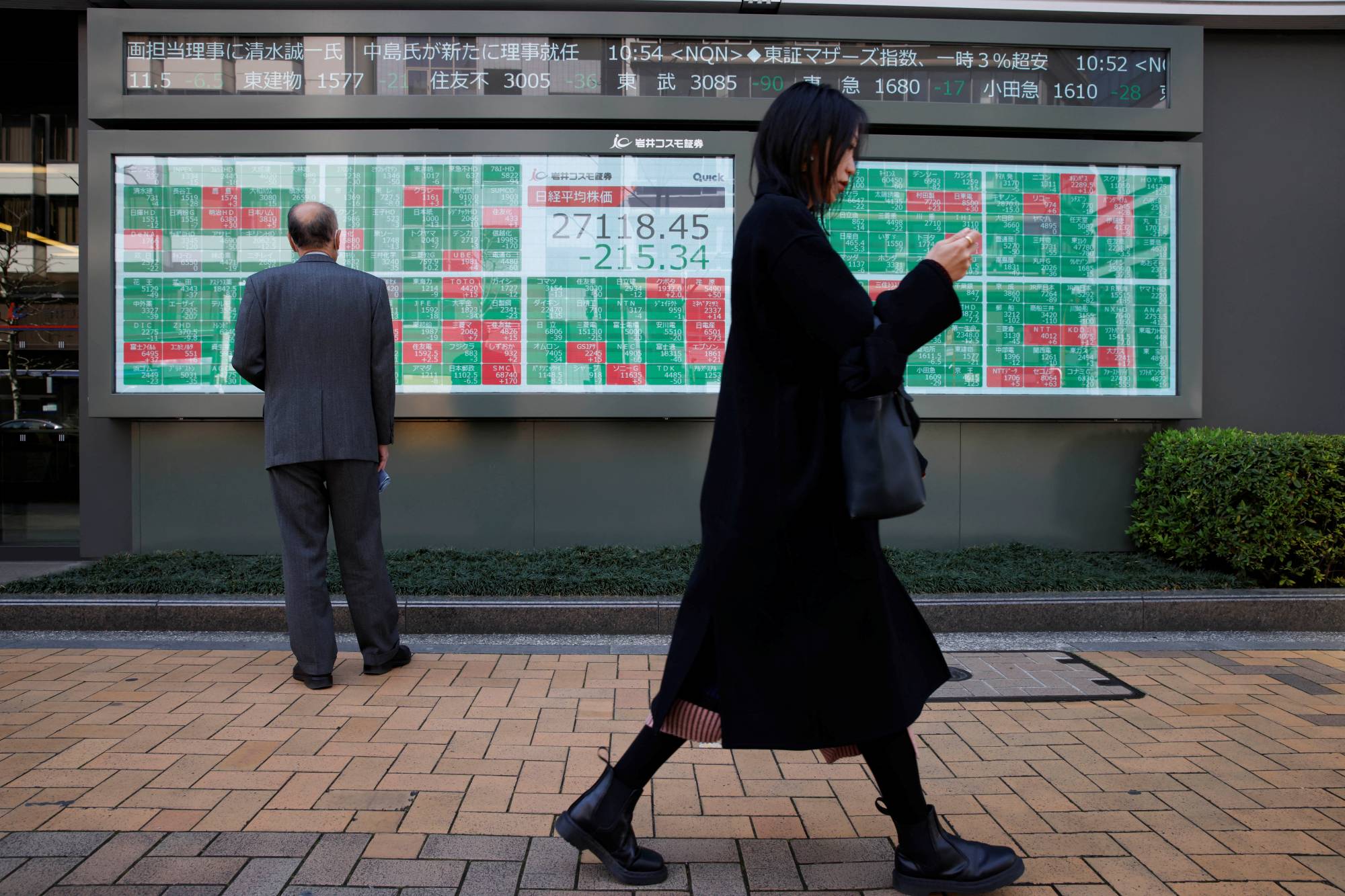Despite news that UBS would acquire troubled Swiss bank Credit Suisse in order to stem global financial turmoil, Asia-Pacific markets were largely downcast on Monday.
The 225-issue Nikkei average, Hong Kong’s Hang Seng and Australia’s S&P/ASX were all down, as turbulence in the banking sector continued to cast a shadow. The Nikkei closed at 26,945.67, down 1.42% from Friday.
Following the collapse of two midsize banks in the U.S., the global banking sector has been closely watching for signs of contagion, while officials have sought to offer reassurance.


















With your current subscription plan you can comment on stories. However, before writing your first comment, please create a display name in the Profile section of your subscriber account page.